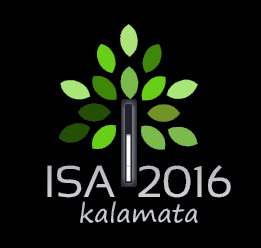
Our generation is the first of our species to live through the transition ofgeological epochs. The significance of this is not just in living through this transition, but in understanding that thischange is the result of human agency. The so-calledAnthropocene is therefore unique among geological epochs, as it represents the emergence of our species as the greatest determining force in the very environment it inhabits.With the growing awareness of humanity’s capacity to impact significantly on earth processes, both earth-based disciplines and natural and applied sciences have turned their focus towards documenting and modelling these processes and changes through extensive programmes of quantitative measurement and mapping. Itis in some way surprising that Archaeometry has been slow to join the many related disciplines in this effort. Its ability to generate high resolution chronology, to determine strategies of material and technological exploitation alongside contextual quantification of social systems make itsecond to none in terms of its ability to contribute to studies of the Anthropocene. After all, it is the prime subject matters of Archaeometry, technological innovation and change, chronology, and defining scales of social interaction, that are at the heart of the processes that gave rise to current globalconditions.
In order to make a significant contribution to Anthropocene studies, Archaeometrymust develop a framework through which to align itself more directly with research in this area. Traditionally, Archaeometry has focused more towards prehistory, where, in the absence of text, it has sought to furnish archaeologists with richer data on which to base interpretation. While there has been an increasing range of research on the historical period, its influence has been less than in prehistory and it is timely for theArchaeometristto consider the specific demands of working in the post-medieval period.
Studies which address the conditions that have led to the Anthropocene have generally been limited to the last 250yrs, being informed by contemporary social, economic and political histories that exclude longer term analysis. Archaeometryhas the potential to extend our understanding of human influence on global processes into deep time, to not only more fully understand the longeduréebut to do so from a material perspective too often absent in historical writings.A key issue for panel debate is how Archaeometry might align itself alongside earth-based disciplines to address Anthropocene research.
Furthermore, Archaeometry is inherently interdisciplinary,as it is populated by scholars who have expertise in both science and the humanities and who work on the social context of technology and environment-material relations. This combination has the potential to offer real value to Anthropocene research. While academia can broadly contribute to better understanding chronological issues, technological matters and the expansion of social systems, there are few disciplines better placed to temper the understanding of the impact of technological and environmental change with a deep appreciation of anthropological and social processes. Equally, few anthropologists or humanities-based researchers will have the scientific literacy to be found among the Archaeometry community. From this perspective the role of interdisciplinarity and the role of Archaeometryto promote this will form a further strand of the panel debate.
It is the time depth of Archaeometry, its inherent interdisciplinarity and its expertise on an array of key topics from the social context of technology to the dynamics of environmental change, that make its contribution central to this important theme and we welcome perspectives from all delegates.
In order to make a significant contribution to Anthropocene studies, Archaeometrymust develop a framework through which to align itself more directly with research in this area. Traditionally, Archaeometry has focused more towards prehistory, where, in the absence of text, it has sought to furnish archaeologists with richer data on which to base interpretation. While there has been an increasing range of research on the historical period, its influence has been less than in prehistory and it is timely for theArchaeometristto consider the specific demands of working in the post-medieval period.
Studies which address the conditions that have led to the Anthropocene have generally been limited to the last 250yrs, being informed by contemporary social, economic and political histories that exclude longer term analysis. Archaeometryhas the potential to extend our understanding of human influence on global processes into deep time, to not only more fully understand the longeduréebut to do so from a material perspective too often absent in historical writings.A key issue for panel debate is how Archaeometry might align itself alongside earth-based disciplines to address Anthropocene research.
Furthermore, Archaeometry is inherently interdisciplinary,as it is populated by scholars who have expertise in both science and the humanities and who work on the social context of technology and environment-material relations. This combination has the potential to offer real value to Anthropocene research. While academia can broadly contribute to better understanding chronological issues, technological matters and the expansion of social systems, there are few disciplines better placed to temper the understanding of the impact of technological and environmental change with a deep appreciation of anthropological and social processes. Equally, few anthropologists or humanities-based researchers will have the scientific literacy to be found among the Archaeometry community. From this perspective the role of interdisciplinarity and the role of Archaeometryto promote this will form a further strand of the panel debate.
It is the time depth of Archaeometry, its inherent interdisciplinarity and its expertise on an array of key topics from the social context of technology to the dynamics of environmental change, that make its contribution central to this important theme and we welcome perspectives from all delegates.
Create a free web site with Weebly